Reflections, space and sabbaticals beside the sea in Eastbourne
I do some of my best thinking on my daily ‘walk to work’. It’s a ritual I’ve followed from my early days as a commuter and I’ve found that, no matter what I am working on (or where), this reflection time is vital. I’m fortunate; I live close to the sea (in Eastbourne & LIsbon) and today as the tide was going out the scent of moss on rocks and seaweed filled the air.
It was a special moment and for some reason triggered a recollection of the scent of Bakhoor (wood chips soaked in fragrance oils) I was to discover on my first business trip to Jeddah 40 years ago. Then, as Business Class did not exist, I travelled in First on a Lockheed Tristar 1011 that landed at the old Jeddah airport close to the centre of the city. It was August and blisteringly hot just before the Hajj so the airport was full of people all in white arriving for their once in a lifetime pilgramage to Mecca.
I digress. As if by divine intervention who should appear as the sun made an appearance through the clouds but the Rev Giles Carpenter, Vicar of St John’s Eastbourne who was out for his morning constitutional with his dogs. Giles, a family friend, has a quiet yet persuasive manner. He has built a vibrant church community based on actions not words. His is a 24×7 role and interestingly his employer recognises the importance of a time out / reflection period. Giles is off on a sabbatical having just completed the 5 year mission of the church which has been a collaborative not top down process similar in style to many KM programmes.
Inside the EU in Bruxelles
Fast forward 40 years and I’m in Bruxelles with Chris Collison working with the Knowledge Management Community in the European Union. We are here, at the invitation of Marie-Veronique Lecomte, to run a Masterclass, on the ISO 30401 KM Standards as viewed through the lens of the KM Cookbook, then host a clinic on KM issues they are facing. It’s been many years since I was here on Communities of Practice with Richard McDermott and though I’ve been to the city a a few times since its my first excursion via Eurostar from Ebbsfleet Int.
The event is extremely well attended (50+) and begins well with many favourable and welcome comments on the KM Cookbook. Throughout the day the group are enthusiastic and energetic. The stories we share from the book are particularly well received and relevant. Unsurprisingly, when we get to the KM Canvas and they start to work on some of the questions, what emerges is a community at different stages of evolution facing the familar challenge wherein KM strives to have a commonly understood identity and purpose.
Having followed the technology route using Yammer and Teams as a way of encouraging collaboration WHY KM I find myself asking? What problem is KM the solutiion for and how (if at all) does it map back to the strategic direction of the European Commission?
Like the International Olympic Committee (IoC), the European Commission faces a significant challenge to transfer and make use of knowledge: from consultants who come and go; from new and departing staff; and from relocating staff. How does it build on what it knows especially in Directorates such as Joint Research Centre (JRC)?
So if that’s a ‘Why’ then, taking a deeper dive into the How, locating expertise across such a diverse organisation is a huge issue. I think back to a Masterclass Martin White and I held on Expertise Discovery 2 years ago. Ahead of that we ran a survey to see how prepared organisations are to tackle the challenge of locating and utilising expertise. Here’s an extract that illustrates a few of the areas that JRC might need to address if it goes down the technology route:
In reality probably 10% of employees leave each year and are replaced by a similar number of new employees. Your organisation will have taken a lot of care in selecting these new employees on the basis of the expertise and experience they will bring with them.
One of the surprising outcomes of the survey is that little attention seems to be paid to bringing this expertise to the attention of people who might need it or who relied on the employee who has now left. The newcomer will (hopefully) be asked to create a profile but remember that the expertise system has been tracking documents have been written and other contributions that have been made by the person they have replaced for perhaps several years. How long do you think it will be until the system presents the expertise of the new employee as at least equivalent to their predecessor? A month, six months, a year? Until this point in time the investment in the employee in terms of their expertise will be minimal other than to their immediate colleagues.
The expert who has left will leave a trail of knowledge behind but they will not appear on the list of employees or on the email directory. Even in small organisations it can take time for the disappearance of the expert to be common knowledge. Will people searching for expertise and find a name as a result of a document the expert wrote, a network they were part of, or a corporate presentation they gave, be directed to their replacement? This of course assumes that there is someone taking over a role and having the same expertise. Or will the search turn up the expertise equivalent of a 404 error? Managing this situation is not easy and in our experience there is often a difference of opinion as to whether it is the responsibility of HR, their business manager or IT as owners of the application.
We all left with much to ponder on and a resurgent community keen to begin.
Knowledge Matchmaking in Khartoum
Concurrently I was ‘in’ Khartoum for the Sudanese Knowledge Society Symposium on Citizen Science. One of a series of events it was aimed at mobilising local knowledge on topics important for the development of a country undergoing significant political change.
I’d agreed with the organising committee that I would donate a KM Cookbook to the ‘project’ they deemed most worthy and I was delighted to see the list of contenders.
 Unable to be there in person I did nevertheless record a piece to camera which I’m told was well received and I was delighted to learn that ‘Public Transportation’ was chosen. I am hoping that the Transport for London Menu chapter of the book proves of use to them.
Unable to be there in person I did nevertheless record a piece to camera which I’m told was well received and I was delighted to learn that ‘Public Transportation’ was chosen. I am hoping that the Transport for London Menu chapter of the book proves of use to them.
I owe thanks to Ana Neves and Ron Donaldson for their willingness to share their experience on mobilising citizen knowledge with Dr Gada Kadoda and the team in Sudan.
And finally
As President Elect I attend, but do not vote at, CILIP Board meetings and I attended my first in January. As a charitable organisation established by Royal Charter it is well placed to become a natural home for the Knowledge (and Information) Management Community. Over the coming months it will be unveiling an exciting programme of events and witnessing the first graduates of the KM Chartership Cohort. This has gained a lot of support and generated much global interest: the latest enrollment was full in a day.
I remain on the Project Board overseeing the Chartership and Fellowship project and will be talking more on this in March at the KM Summit in London.

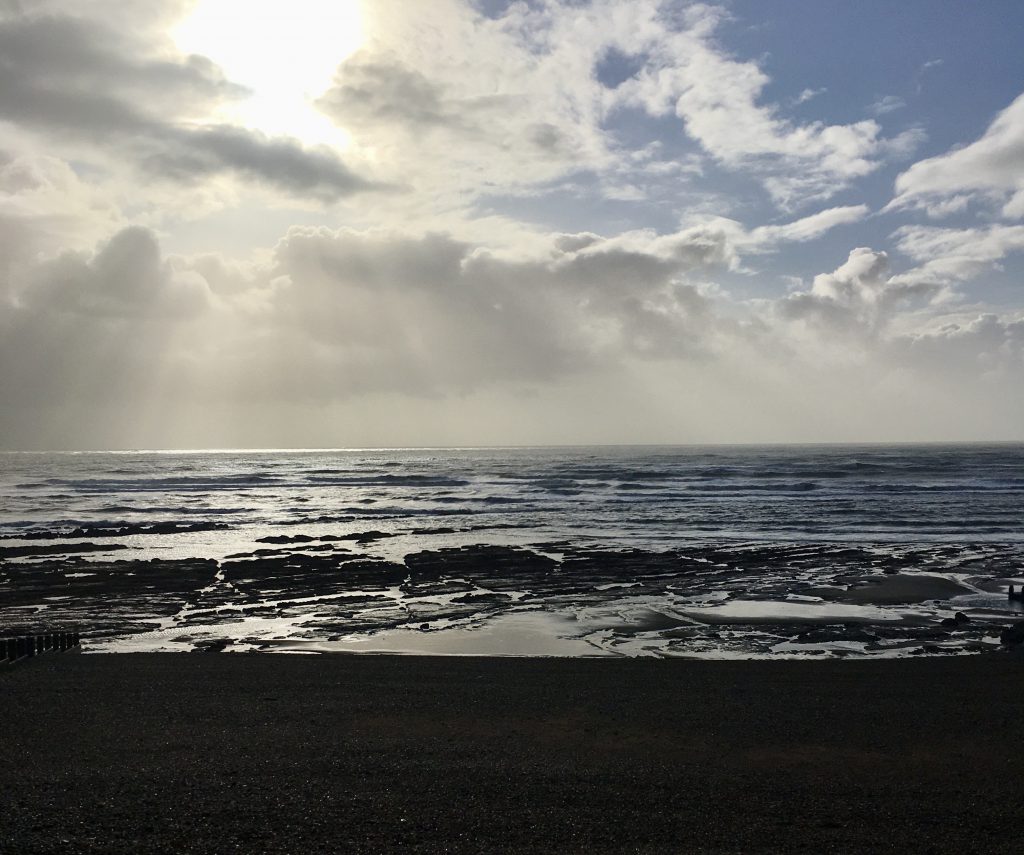
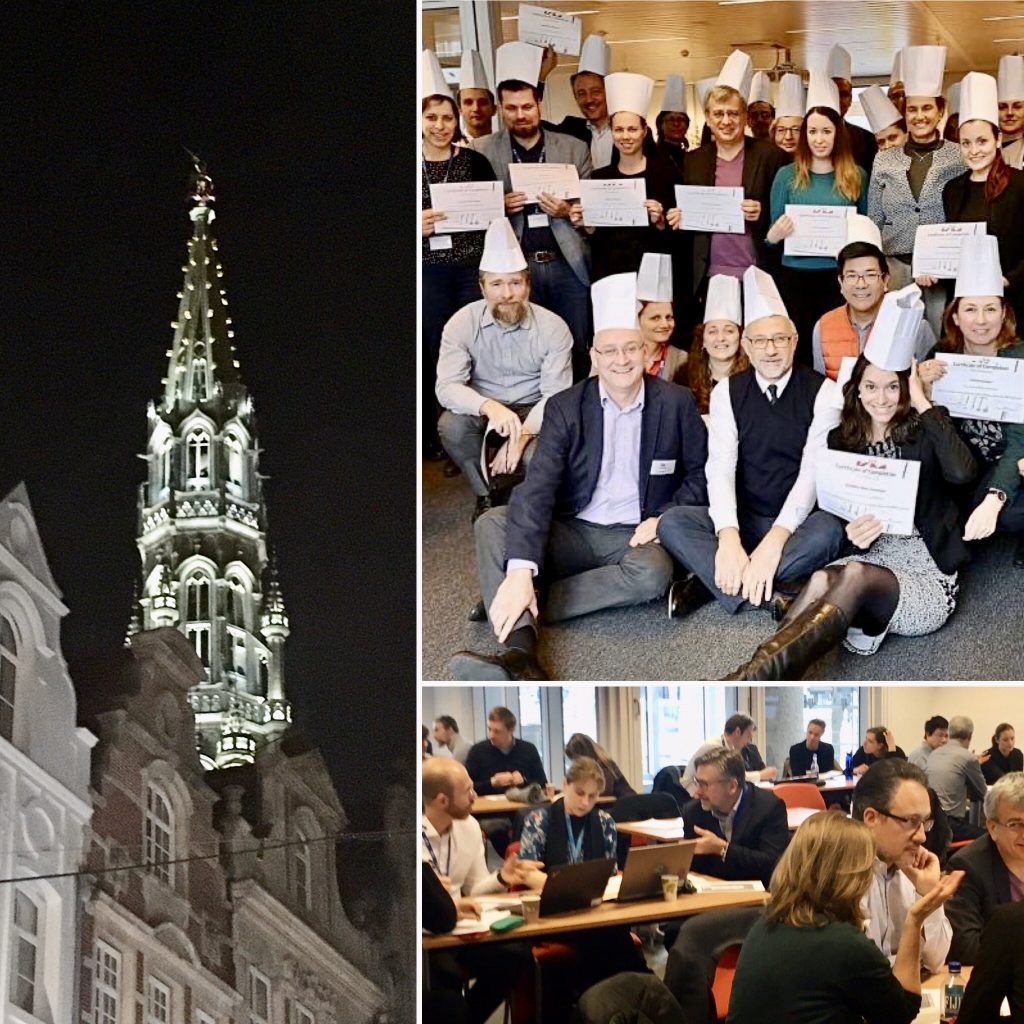
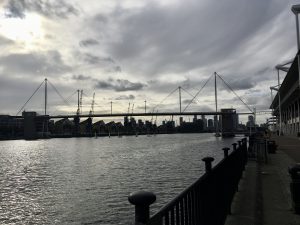
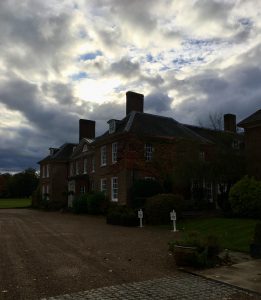

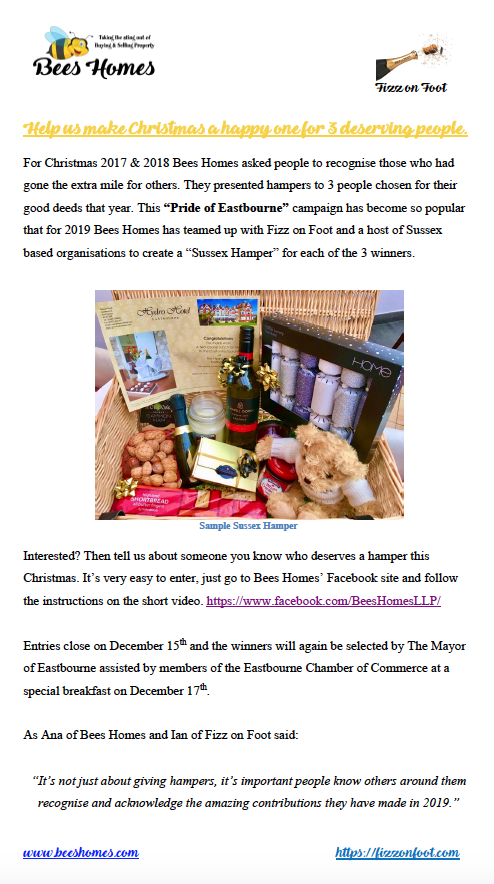


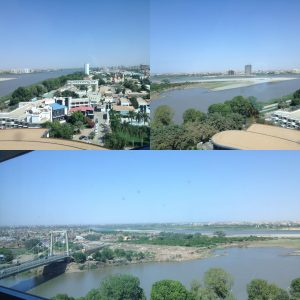 Day One/Two: Early morning in Khartoum is magical when you overlook the Nile and the view from my suite is amazing.
Day One/Two: Early morning in Khartoum is magical when you overlook the Nile and the view from my suite is amazing.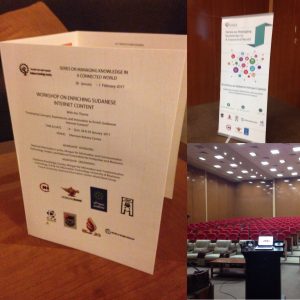 I was asked to give the opening Keynote at this event and to set the following two day’s of activities into context.
I was asked to give the opening Keynote at this event and to set the following two day’s of activities into context.



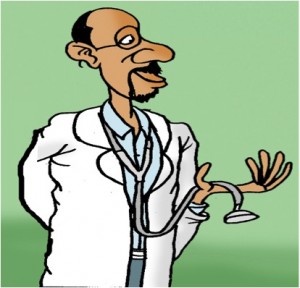
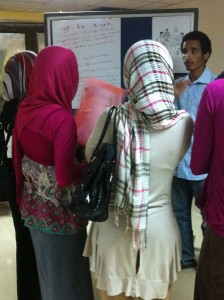
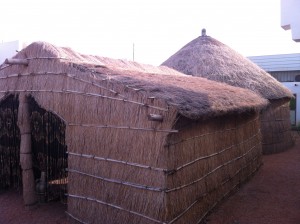
Euan Semple you and I have talked before about having a portfolio of activities where a thin red line or thread connects everything you do. I know many people who’ve taken a jump from the security of a “day job” to being in what today is known as the gig economy. And in the majority of cases they are more fulfilled emotionally if less financially enriched. I’ve watched your journey from corporate to ‘consultant’ to ‘traveller’ with admiration. I’ve always believed that people are judged by the stories others tell about them. You’ve spawned many. Keep travelling!